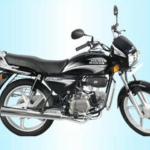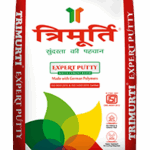
Different Types Of Driving Licences In India
Understanding driving license regulations is vital for those craving the freedom of the open road in the complex network of India’s roads. The spectrum of driving licenses is more than permissions; it’s a nuanced array reflecting the diversity of vehicles on the vast subcontinent.
This exploration unveils the intricate tapestry of legality, responsibility, and the diverse demands of vehicular operation. Furthermore, the journey delves into the intersection of licensing with pivotal aspects like motor insurance, vital components of the driving experience.
Types Of Driving Licences
- Learner’s Licence: The initial step in acquiring a driver’s licence involves obtaining a learner’s licence from the Road Transport Authority (RTO). Valid for six months, it requires supervised driving, akin to guiding a toddler taking their first steps.
- Permanent Licence: Individuals aged 18 and above can obtain a permanent license by passing the driving test. This process signifies the RTO’s confidence in the driver’s competence, akin to allowing a child independence once they can walk.
- Commercial Vehicle Licence: A special license involving additional requirements is necessary for operating heavy machinery and commercial vehicles. This emphasises the heightened responsibility of commercial drivers for the safety of others.
- International Driver’s Licence: Indicating qualification to drive abroad, this licence is granted based on an existing valid driver’s licence and is valid for a year, requiring renewal after that.
Categories Of Driving Licences And Vehicle Types:
- MC 50 cc: Vehicles with engines smaller than 50cc.
- LMV-NT: Light motor vehicles, excluding cars and jeeps.
- FVG: Vehicles without gears, e.g., scooters and mopeds.
- MC EX50CC: Motorcycles with gears and engines 50cc or more.
- MCWG: Motorcycles with or without gears.
- HGMV, HPMV, MGV, HMV, Trailer, LMV: There are various categories for commercial and non-commercial vehicles based on size and purpose.
Consequences Of Not Possessing Licence
Driving without a valid licence can result in fines of up to Rs 5,000, emphasising the government’s commitment to road safety. Offenders causing accidents face immediate licence revocation, with penalties escalating for subsequent offences.
Handling Licence Issues
- Loss Of Licence: Report the loss to the local police station, file a First Information Report (FIR), and submit an affidavit. Apply for a duplicate licence after the complaint is resolved.
- Expired Licence: To apply for renewal, use Form 9 from the RTO, which includes the original expired licence, three passport-sized photos, and the radar card.
The symbiotic relationship between licensing and motor insurance policies, such as motor and bike insurance, underscores every driver’s responsibility on the nation’s thoroughfares. In the realm of diverse driving licenses in India, obtaining car insurance emerges as an indispensable component, providing a protective shield against the uncertainties that accompany every journey on the nation’s roads. Claims are subject to terms and conditions set forth under the motor insurance policy.
In the ever-changing landscape of driving norms, the imperative to renew car insurance remains constant, emphasising the need for a vigilant and informed approach to maintaining the integrity of personal safety and vehicular well-being. As we traverse the lanes of driving licences, we unveil not just legal intricacies but also the interconnected web that binds responsible driving, car or bike insurance policy protection, and the collective pursuit of road safety in India’s diverse and dynamic landscape.
Standard T&C Apply
Disclaimer: The content on this page is generic and shared only for informational and explanatory purposes. It is based on several secondary sources on the internet and is subject to changes. Please consult an expert before making any related decisions.
Insurance is the subject matter of solicitation. For more details on benefits, exclusions, limitations, terms, and conditions, please read the sales brochure/policy wording carefully before concluding a sale.







